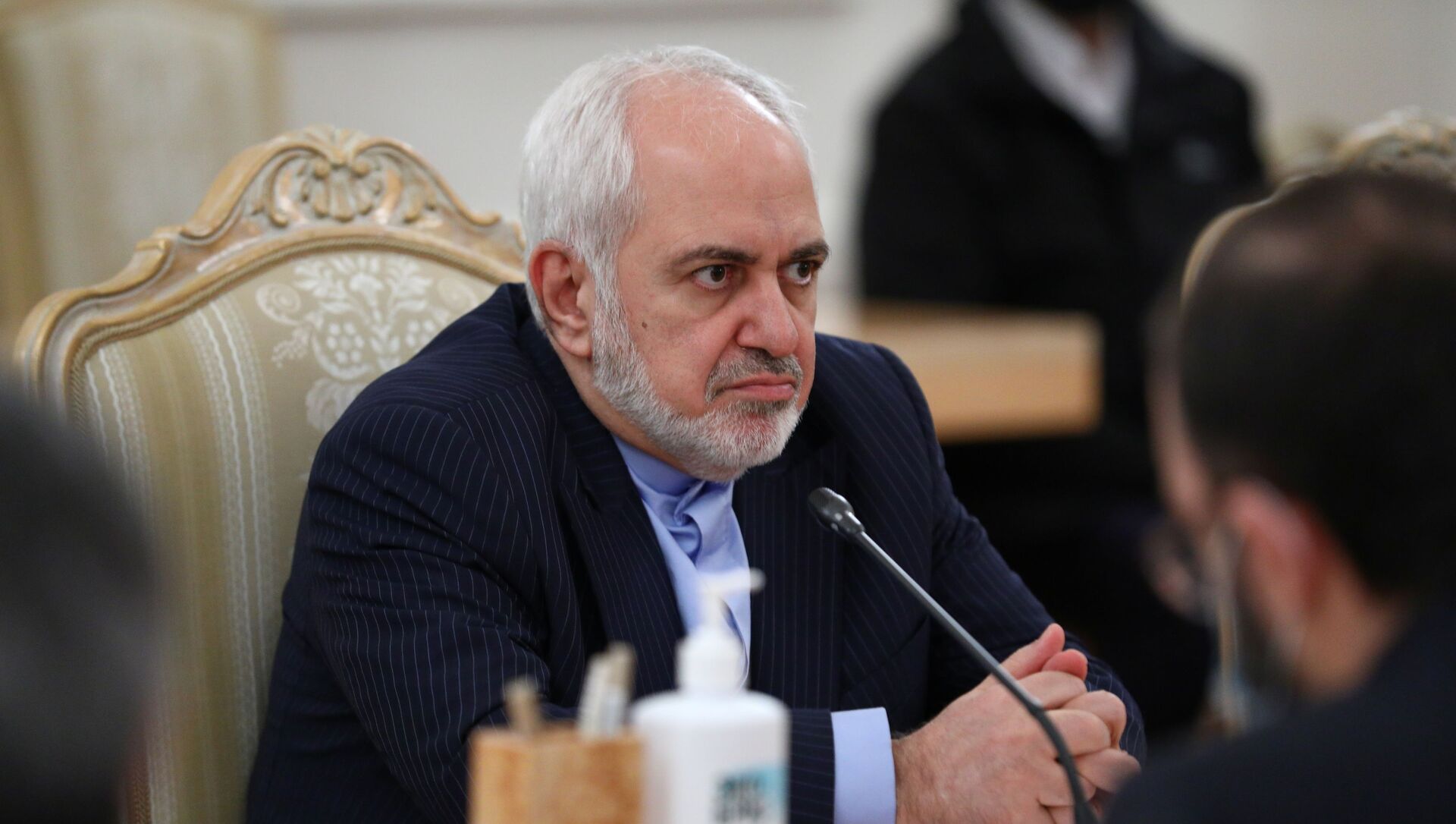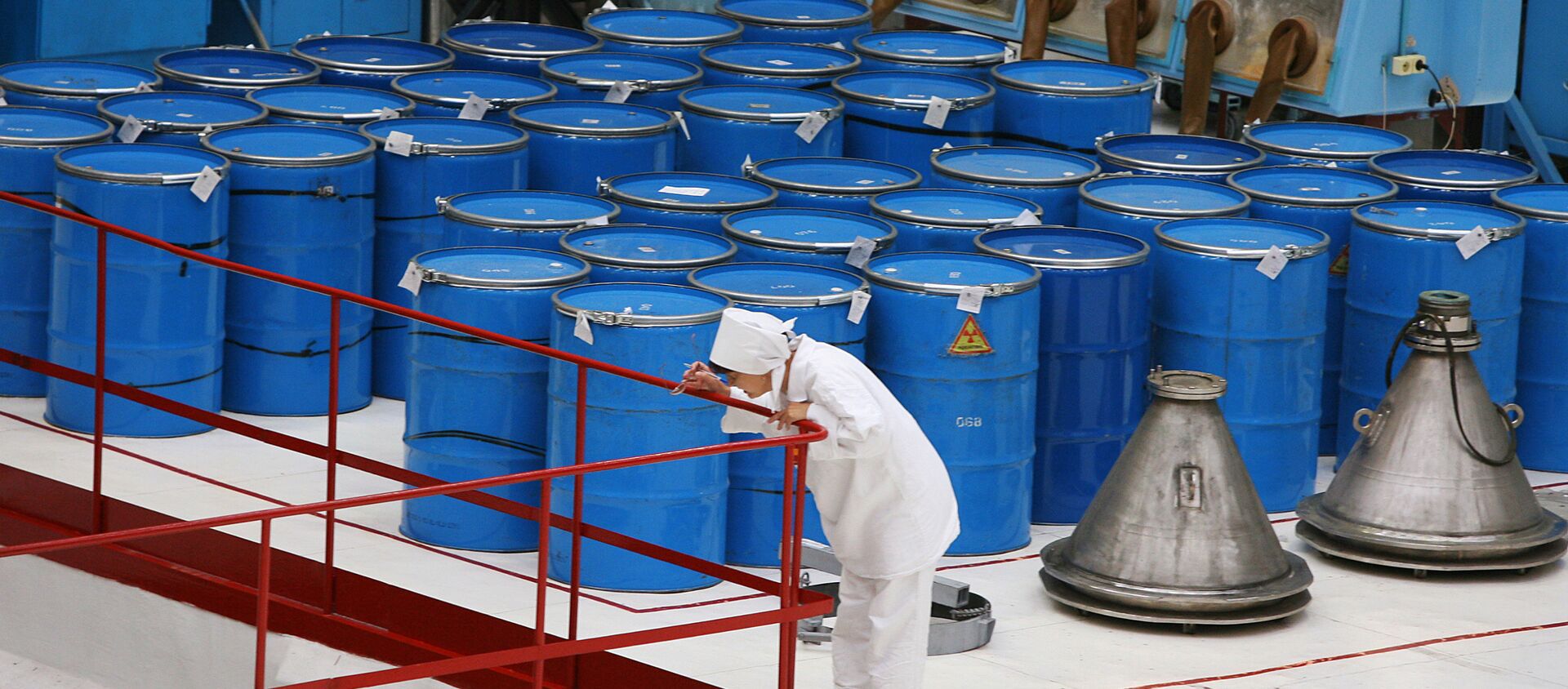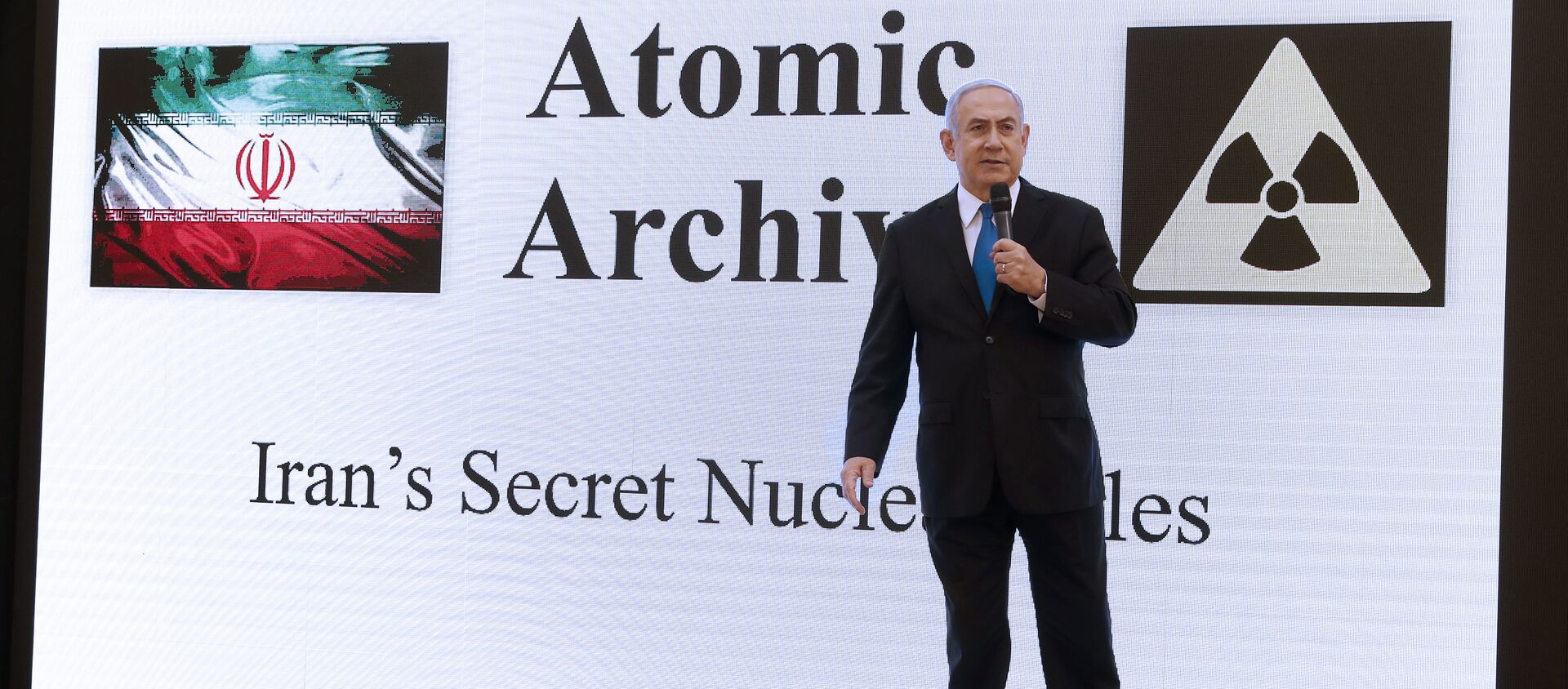Iranian Foreign Minister Mohammad Javad Zarif has expressed his disappointment with the Biden White House’s inability or unwillingness to change Washington's Trump-era policy on Iran.
“It has been a month now that the Biden administration has been continuing Trump’s ‘maximum pressure’ policy of lawlessness, one-upmanship, and bullying,” he said, speaking on the sidelines of a meeting of Iran’s cabinet on Wednesday, his remarks cited by PressTV.
“If they believe that this policy has failed and made the US lose face, then its continuation is not going to help them out either, and will bring with it the same failure and disgrace for them,” the diplomat added.
Zarif also clarified that the Iranian parliament’s 23 February deadline after which the country will end its voluntary adherence to the Additional Protocol of the Nuclear Non-Proliferation Treaty will not mean an end to its routine cooperation with the IAEA, with inspections allowed to continue, although no longer in intrusive, short-notice fashion. He also stressed that the withdrawal from the Additional Protocol would be reversed immediately if sanctions against Iran were lifted.
“If [The US thinks] they can create leverage for themselves by sustaining their already defeated policy, they should know that in Iran too, some developments will take place on the ground,” Zarif said, referring to the country’s planned countermeasures.
Early Hopes Starting to Sour
Donald Trump pulled out of the agreement in May 2018 and restored crushing banking and energy sanctions against Iran. Tehran gave the deal’s remaining signatories one year to create a mechanism to override US sanctions or soften their blow. After they failed to do so, Iran began to withdraw from its commitments under the nuclear deal. At the same time, US courts continued to pilfer billions of dollars in Iranian assets frozen in American banks, including with a 2018 ruling by a New York court to spend $6 billion in Iranian cash to ‘compensate the victims of 9/11’, even though Iran had nothing to do with the terror attacks.
Despite coming into office on 20 January, the Biden administration has not hurried to return to its commitments under the JCPOA. Instead, Washington has demanded that Tehran dramatically reduce its uranium enrichment and stockpiling activities and fully return to its obligations under the agreement first. The Islamic Republic rejected the demands, saying America must lift its sanctions, since it was the US side which abrogated its commitments to the nuclear deal in the first place.
Iran began enriching uranium to 20 percent at its Fordow Fuel Enrichment Plant last month, far beyond the 3.67 percent limit outlined by the JCPOA, but still far below uranium that would be considered weapons grade. For example, the Little Boy nuclear bomb dropped on the Japanese city of Hiroshima in 1945 by the United States had a uranium enrichment level of about 80 percent. Modern ‘weapons grade’ uranium is enriched to 90 percent or above.




